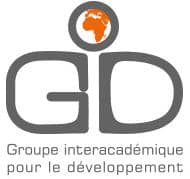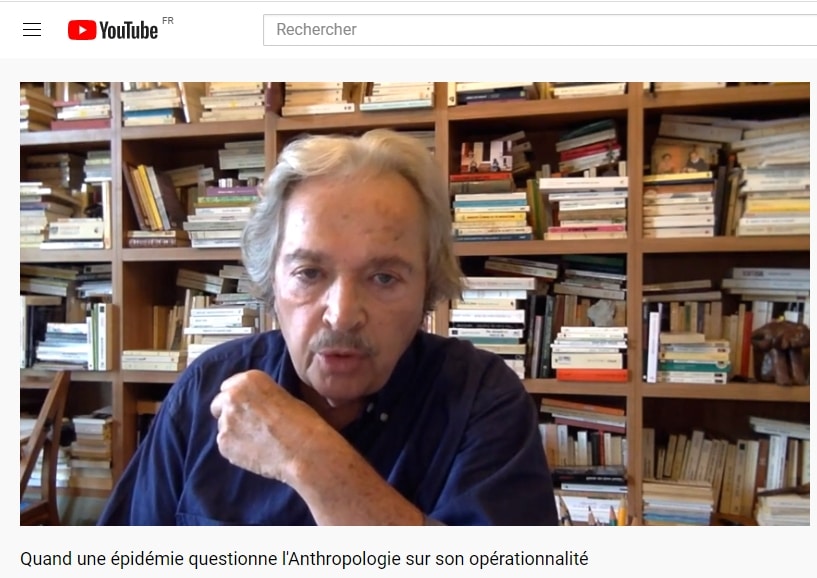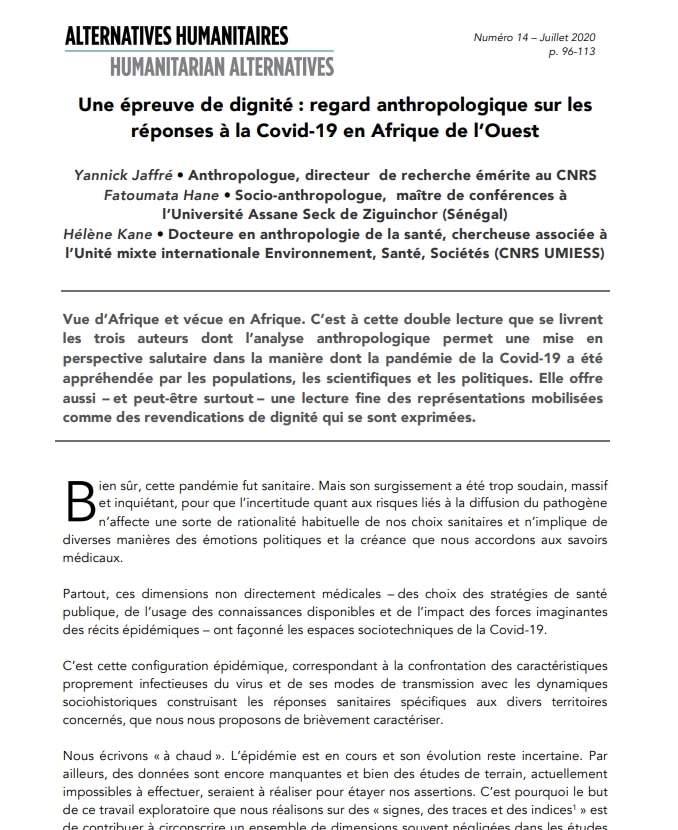Quand une épidémie questionne l’Anthropologie sur son opérationnalité
Depuis, les années 2000 nous savions scientifiquement que la survenue d’une pandémie grippale était probable. De nombreux textes, plans et réflexions attestent de cette sorte d’attente documenté. Et pourtant, force est de reconnaître que globalement [...]
Une épreuve de dignité : regard anthropologique sur les réponses à la Covid-19 en Afrique de l’Ouest
Vue d’Afrique et vécue en Afrique. C’est à cette double lecture que se livrent les trois auteurs dont l’analyse anthropologique permet une mise en perspective salutaire dans la manière dont la pandémie de la Covid-19 [...]
Corps biologiques, corps désirants, corps politiques. Les interfaces sociales et techniques des programmes de « santé de la reproduction » en Afrique de l’Ouest
Dans le monde, malgré de très importants programmes sanitaires1, 358 000 femmes décèdent pour des raisons liées à la grossesse ou l’accouchement, dont 204 000 en Afrique Subsaharienne (Ronsmans 2006, de Bernis 2010). Autrement dit, [...]



